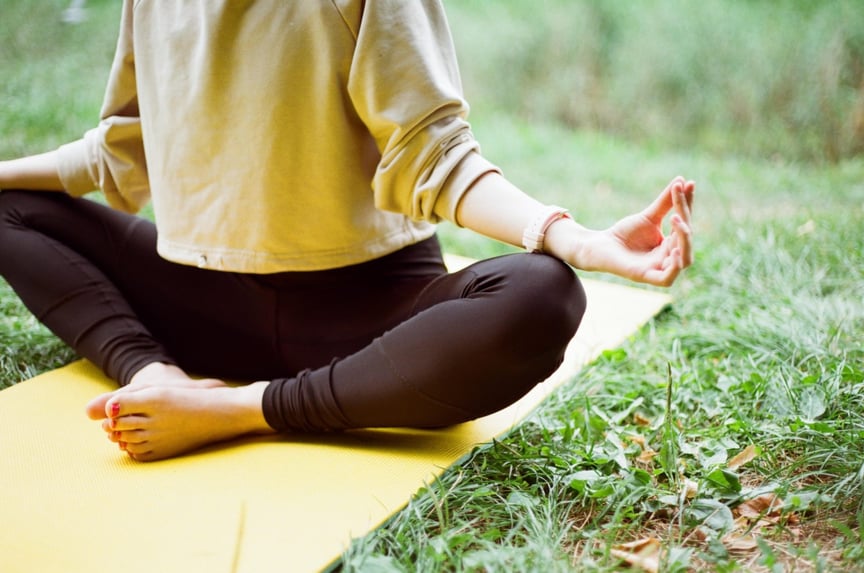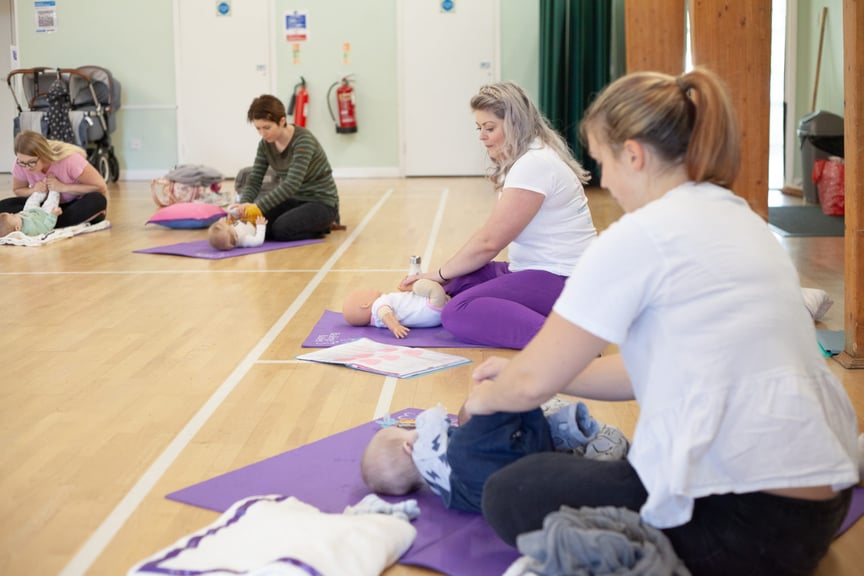
For Maternal Mental Health Awareness Week, we sat down with Sophie Harris, Pregnancy and Postpartum Psychotherapist, to talk about coping with anxiety as a new mum.
As a new parent, you will likely notice feeling more anxious than you would normally. It can take time to get used to being a parent, and it is entirely expected to have some level of worry or fear of not doing the right thing for your baby.
For some, this anxiety can feel overwhelming. You might feel a constant fear or dread that holds you back from enjoying life and getting to know your baby.
This excessive anxiety may cause you to become overly cautious. Or, you may spend extensive periods worrying about something terrible happening to you or your baby. All of this can limit your ability to fully enjoy life.
If you are experiencing postpartum anxiety right now, then this post is for you. In this article, I will share some tips about how to calm your postpartum anxiety as a new parent.

Ask yourself what an acceptable level of risk is
Postpartum anxiety can lead you to want to avoid taking any risks. The chance that something bad could happen may mean that you feel safer avoiding doing anything that could cause harm to you or your baby. Alternatively, you might check or seek reassurance to a level that doesn’t feel helpful for you.
For example, you may have a fear of SIDS. This is a reasonable fear that you might want to take precautions against to ensure that your baby’s bed space is adequate or that they are close to you.
However, staying awake all night to check that your baby is okay would be unhelpful. This level of risk avoidance would most likely have detrimental effects on your life, and your mental health would suffer.
Try asking yourself, “what is a healthy level of caution for me to be taking in this situation?”
Alternatively, you could ask yourself, “what advice would I give a friend in this situation?”
This can help you create a more balanced view of a practical level of precaution and risk-taking.
Calm physical anxiety
Anxiety often creates tension, which can cause physical stress on your body. Try to find ways to reduce some of the physical stress you are experiencing.
Learning to take long, deep breaths into your belly will help calm your body. This is an essential skill that can be practised throughout your day to help you manage in times of stress.
Other ways to help you relax include spending time in nature. Time outdoors will help to relax your nervous system. This will have a positive impact on your anxiety levels and overall wellbeing.
Try to find ways specific to you that help you feel calm. This might include swimming, talking with a friend, drawing, or yoga. Try to schedule some of these relaxing activities for your week to help you feel calmer.

Try not to avoid
You may find yourself not doing activities you want to due to anxiety. It is understandable that you would do this due to the short term impact of keeping you feeling safe and avoiding feeling anxious.
However, avoiding doing what you would typically do tends to make you more anxious in the longer term. The longer you don’t do something, the harder it gets to start doing it again.
For example, if you feel anxious about driving after having your baby, it would be tempting to avoid driving altogether. However, as you might imagine, the longer you stop driving, the harder it will be to start again. You might start believing that you are not capable, or the thought of driving becomes too overwhelming.
The preferable option would be to set yourself manageable drives to practice. This would help build your confidence until you can drive further and no longer experience anxiety whilst doing it.
So, if you are avoiding something, ask yourself, “what could I do to challenge my anxiety?”
This might be attending a baby class you have been putting off or visiting a friend you would like to see.

Give yourself compassion
Feeling anxious is hard. When you get worried, you may find that you start criticising yourself.
“Why do I feel this way?”
“Why does no one else feel like this?”
“I should be coping better”
…Any of these sound familiar?
Rather than criticising yourself, try talking to yourself with compassion.
Your mind may have a way of playing tricks on you when you are down, making you think that you are the only one going through a difficult time. It is important to remember that everyone struggles. You are not the only one.
When you are having a hard time, talk to yourself with the same kind words you would use when talking to a friend. This might sound something like,
“I’m sorry you are feeling this way, this is really tough right now. What do you need to help?”
Then, do something to help yourself that can make you feel better.
Accept your anxiety
Anxiety is uncomfortable, but it is not dangerous. When you try to get rid of anxiety, you are placing your attention on your difficult feelings. This can make you feel worse.
Instead, try accepting anxiety as part of your everyday experience. When you feel anxious, simply notice it, but don’t label it as bad.
If you can accept your anxiety, you will use less energy to fight your experience. If you focus less on your anxiety, you will likely feel better.
Get support for your anxiety
Talking to other new parents about your experiences is important for feeling better. Through having conversations about this, you will likely realise that you are not the only one who finds things hard!
Classes like here at Basking Babies are great for meeting other new parents in similar situations.
Alternatively, do you think that you would benefit from working with a therapist? Postpartum therapy can help you to manage anxiety and feel much calmer and more content.
Alternatively, you may be eligible for NHS support that you can access via your GP or Health Visitor.
About the author

Sophie Harris
My name is Sophie Harris and I am a psychotherapist who specialises in helping new mums during pregnancy and the postpartum period. I aim to normalise the tough times of early motherhood, help mums feel better, and celebrate being a mum.
My Instagram provides a supportive community, where we regularly chat about the highs and lows of motherhood. Come and join us!
I also create a monthly Looking After Mum Guide. This can be sent directly to your inbox. It contains lots of support to help you through the early days of motherhood.
If you would be interested in receiving some psychological therapy to help you manage postpartum anxiety then you can find my details here.
